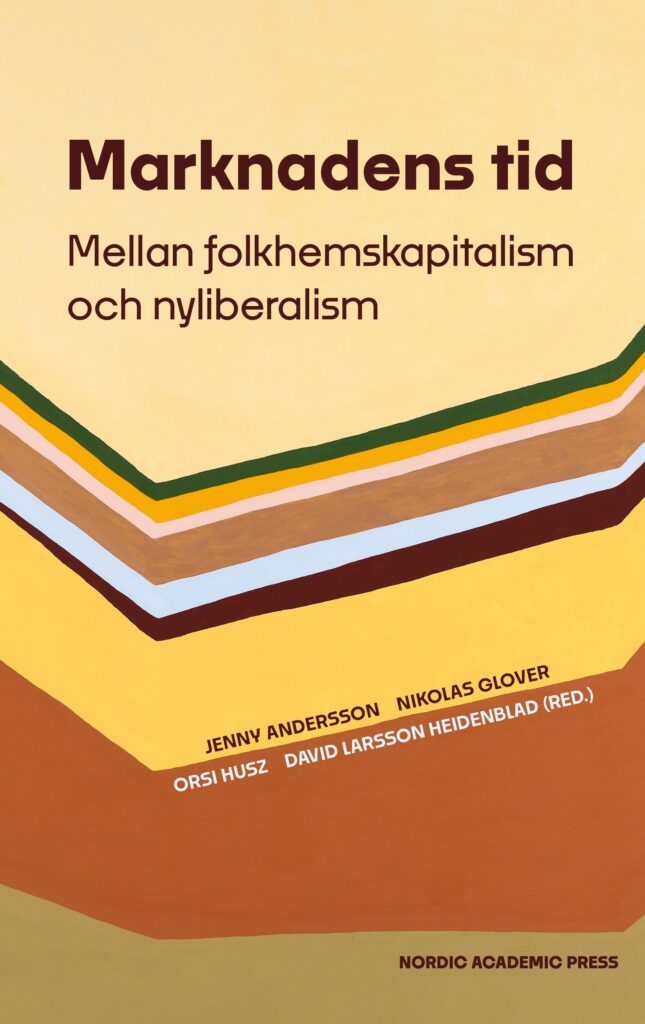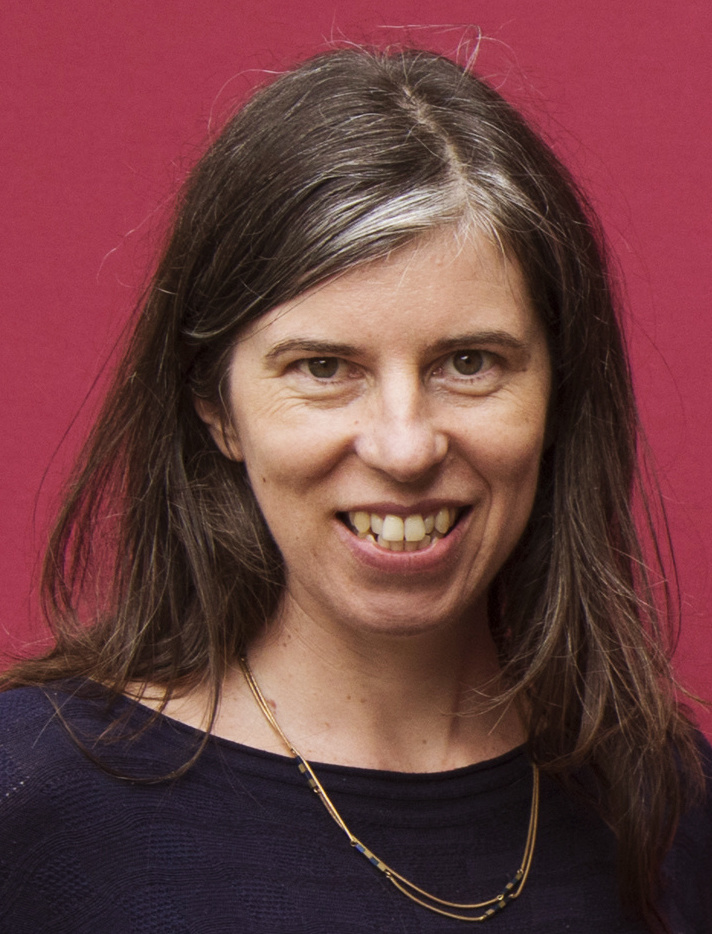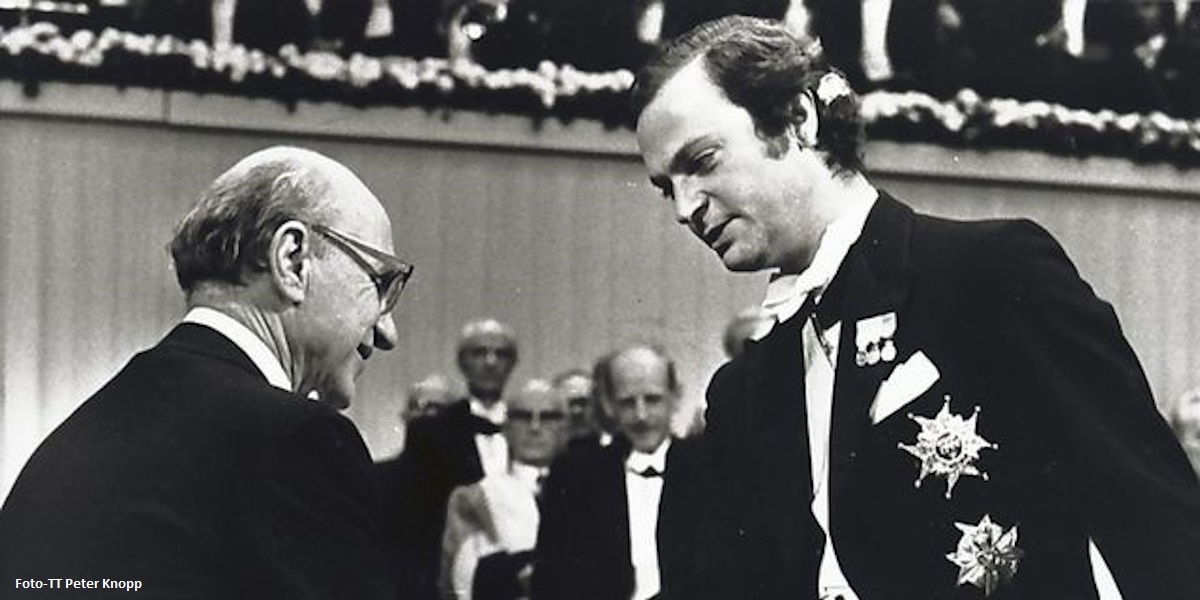Markets as Political Orders, Conference at SCAS, 8-9 May, 2025
International conference organized by Jenny Andersson and SCAS. Link.
______________________________________________________________________
Programme meeting in Uppsala with the Swedish group, March 12, 2025
Presentation of papers and planning of joint research
______________________________________________________________________
Nordic Marketing History Workshop, February 6-7, 2025
Nikolas Glover is one of the organizers of this workshop which will gather researchers from the programme to present and discuss their projects with other Nordic scholars.
______________________________________________________________________
Webinar November 19, 2024: ”Marknadens språk: Studier i talet om marknader från medeltid till nutid”
On Tuesday November 19, at 15-16.30 (CET) we have invited Leif Runefeldt (Södertörns Högskola), Claes Ohlsson (Linnéuniversitetet) and Henrik Björck (Göteborgs Universitet) to present their project about market language. Elin Åström Rudberg will also present a paper on debates about market forces in the Swedish parliament.
______________________________________________________________________
Programme meeting in Middelfart, Denmark, September 4-6, 2024
The programme participants will gather in Middelfart, Denmark for discussions on the forthcoming edited volume, drafts of papers, and book projects.
______________________________________________________________________
Programme meeting in Uppsala with the Swedish group, April 26, 2024
Presentation of papers and planning of joint research, mainly among the researchers in the Swedish group.
______________________________________________________________________
Webinar April 23, 2024: The Mediated Representation of the Super-Rich
This webinar will take place on Tuesday, April 23, 2024, at 3-4 pm (Stockholm time) with Axel Vikström from Örebro University who will present his PhD thesis in media and communication studies with the title The Mediated Representation of the Super-Rich.
______________________________________________________________________
Boklansering: Marknadens Tid på Centrum för Näringslivshistoria 17 januari, 2024
Den 17 januari 2024, kl. 17.30 på Centrum för Näringslivshistoria i Bromma i Stockholm kommer Marknadens Tid att lanseras och presenteras med medverkan av flera av redaktörerna och författarna till boken. Det går att anmäla sig till eventet här!

______________________________________________________________________
Online workshop on the edited volume Neoliberalism in the Nordics, 16 January 2024
After the workshop in Dalarna in Sweden to discuss the first drafts of the contributions to the planned edited volume Neoliberalism in the Nordics, the discussions will continue at this online workshop.
______________________________________________________________________
Webinar, Monday December 4, 2023 at 3–4.30 pm (CET) with Janick Schaufelbuehl
At this webinar associate professor Janick Schaufelbuehl from Lausanne University will present the project: ”The apostles of the market economy: Swiss protagonists and networks of global neoliberalism 1969-1995”.
______________________________________________________________________
Presentation av Marknadens Tid på Uppsala Universitet, torsdag 16 November, 2023
Vid högre seminariet på institutionen för idéhistoria vid Uppsala Universitet kommer den nya boken Marknadens Tid: mellan folkhemskapitalism och nyliberalism att presenteras. Läs mer om boken här!
______________________________________________________________________
Webinar, Tuesday, October 24, 2023 at 3–4.30 pm (CET) with Mathias Krusell and Rasmus Fleischer
Mathias Krusell from Gothenburg University presents his PhD project Decentralization and Management Consultants in Swedish State administration 1965-1975.
Rasmus Fleischer from Stockholm University presents his research on Inflation measurement and the problem of qualitative change on the consumer market in the official statistics of 20th century Sweden. The presentation is based on a forthcoming book on the topic in Swedish together with Daniel Berg.
______________________________________________________________________
Workshop, September 14–15, 2023, in Tällberg, Sweden: Neoliberalism in the Nordics, edited volume
Book workshop in Tällberg located in the province of Dalarna in Sweden, organized by Urban Lundberg.
______________________________________________________________________
Conference panels, Thursday, June 29, 2023 in Reykjavik: Neoliberalism in the Nordics
Two panels on the topic Neoliberalism in the Nordics at the 29th International Conference of Europeanists in Reykjavik at University of Iceland, with paper presentations by several of the programme’s researchers, see more here:
______________________________________________________________________
Book project presentation, Thursday, May 25, 2023 in Oslo: The Market Era in Sweden
Presentation of the book project Marknadens Tid (The Market Era in Sweden), a forthcoming edited volume by David Larsson Heidenblad, Jenny Andersson, Nikolas Glover and Orsi Husz, at ReNEW’s 6th annual Nordic Challenges conference in Oslo, with participation by Jenny Andersson, Elin Åström Rudberg, Liza Jakobsson and Linnea Tillema , with Johan Strang as discussant. See more here:
______________________________________________________________________
Webinar, Thursday, April 27, 2023 at 3–5 om (CET): Political thought in East Central Europe
Online book discussion organized by Jenny Andersson on selected chapters from the edited volume by Balázs Trencsényi, Maciej Janowski, Monika Baár, Maria Falina and Michal Kopeček, A history of modern political thought in East Central Europe (Oxford University Press, 2016).
______________________________________________________________________
Webinar, Thursday, March 30, 2023 at 3–5 pm (CET): Market Civilizations
Online book discussion organized by Niklas Olsen on selected chapters from the edited volume by Dieter Plehwe and Quinn Slobodian: Market Civilizations: Neoliberals East and South (Princeton University Press, 2022), https://press.princeton.edu/books/hardcover/9781942130673/market-civilizations.
______________________________________________________________________
Programme meeting in Copenhagen, January 25–27, 2023
Program outline:
Wednesday, January 25
9–12 (CET), Workshop at Lund University on market digital cultures
15.30–17.30 (CET), Book panel in Copenhagen on Jacob Jensen’s forthcoming book: The Marketizers: Public choice and the making of neoliberal order: https://mitpress.mit.edu/9781913380526/the-marketizers/.
Thursday, January 26
At Copenhagen University, working sessions on chapters for a forthcoming anthology
Friday, January 27
At Copenhagen University, paper session and concluding discussion
______________________________________________________________________
Online reading seminar about the book ”The Neoliberal age?”, November 9, 2022
Discussion organized by Cecilie Bjerrre and David Larsson Heidenblad about the book The Neoliberal Age? Britain since the 1970s, Edited by Aled Davies, Ben Jackson, and Florence Sutcliffe-Braithwaite.
______________________________________________________________________
Book discussion about neoliberalism in Denmark in the 1990s, September 16, 2022
Organized by several of our Danish colleagues, book discussion with author Søren Kolstrup about his new book Forandringens årti – mellem velfærd og nyliberalisme 1990-2001. Read more here: https://sdunet.dk/da/enheder/institutter/ih-medarbejderportal/arrangementer.

______________________________________________________________________
Workshop in collaboration with Oxford University, 25-27 September 2022
Jeppe Nevers together with Rowena Olegario (Oxford) and Chris McKenna (Oxford) organize the workshop ”The End of Neoliberal Capitalism?” at Brasenose College, Oxford.
______________________________________________________________________
Programme meeting in Helsinki, August 31 – September 2, 2022
At the meeting about 20 researchers, both from the programme and invited guests participated and discussed new research.
The program in short:
August 31:
Two public lectures by Jenny Andersson and Niklas Olsen at Helsinki University. Read more here: https://www2.helsinki.fi/en/news/society-economy/public-lectures-neoliberalism-in-the-nordics.
September 1:
New project presentations:
Cecilie Bjerre and Klaus Petersen, Våres historie.
Johan Strang (together with Ilkka Kärrylä, Maiju Wuokko, Stefan Nygård, Sophy Bergenheim), Neoliberalisation of Nordic Democracy?
Roundtable on Nordic capitalism: patterns of liberalization, financialization, longue durée with:
- Jari Eloranta, Helsinki University, “A Nordic Model? Long-run fiscal paths to toward welfare states”
- Lars Ahnland, Stockholm University, “Financialization in Nordic Capitalism”
- Sverre August Christensen, Norwegian Business School, “Digitalization, globalization and liberalization in Norway”.
Paper presentations by:
- Ilkka Kärrylä, “The Young Finns Party and the neoliberalisation of the Finnish welfare state since the 1980s”
- Niklas Olsen, “A Second-Hand Dealer in Prometheanism: Bjørn Lomborg and the Turn to Modelling and Technology as Responses to Climate Change”
- Maija Absetz, “The challenge of neoliberalism to labour movement – the role of unemployment in economic and political thinking of central organisations of finnish and Swedish trade unions”
September 2:
Paper presentations by:
- Chris Howell, ”Interrogating Nordic Neoliberalism: How Distinctive is Industrial Relations Liberalization in Nordic Countries?”
- Erik Bengtsson, “Long-run evolution of income inequality in the Nordic countries”
- David Larsson Heidenblad and Charlotte Nilsson, “Personal finance bloggers as popular educators: Performing, embodying, and circulating financial knowledge in the 21st century”
_____________________________________________________________________
Thematic seminar (online), June 14, 2022, at 3-5 pm
Organized by David Larsson Heidenblad on shareholder culture.
_____________________________________________________________________
Thematic seminar (online), May 10, 2022, at 3-5 pm
Organized by Jeppe Nevers & Julian Lamberty.
Alexander Nützenadel presents: ”Financial Intermediation in the Age of Neoliberalism: The Case of Deutsche Bank”.
Financialization is usually characterized as a central feature of the Neoliberal Age. Based on the case of the Deutsche Bank, this paper analyzes the role of banks and their impact on the evolution of global finance since the 1970s. It argues that international commercial banks radically changed their business model in order to maintain a leading role on financial markets. The paper also analyzes the increasing organizational risks that banks assumed in this process.
The webinar is organized by the programme together with the SDU Centre for Business History. Jeppe Nevers will be chair.
Alexander Nützenadel is Professor of Economic and Social History at Humboldt University Berlin and the current Gerda Henkel Visiting Professor at the London School of Economics. His main research interests lie in European Economic History in the twentieth century. He specialises in financial history, the history of economic expertise, and the political economy of fascism in comparative perspective.He is currently working on three projects: a book on the evolution of economic expectations since the nineteenth century (together with Jochen Streb), a study on banking regulation since the 1930s, and a comparative analysis of economic conflict and the rise of right-wing populism in Europe between the two World Wars. He also directs the Priority Program PP 1859 ‘Experiences and Expectations: Historical Foundations of Economic Behavior’ (funded by the German Research Foundation, in cooperation with Jochen Streb).
______________________________________________________________________
Thematic seminar (online), April 5, 2022, at 3-5 pm
Organized by Cecilie Bjerre & Klaus Petersen on the family.
______________________________________________________________________
Programme meeting, Sigtuna, February 9-11, 2022
The programme participants as well as invited international guests participated in an exciting three day workshop at Sigtunastiftelsen in the town of Sigtuna in Sweden. The program included discussions on individual research papers as well as methodological discussions. Content of the programme can be found here.
______________________________________________________________________
Thematic seminar (online) January 25, 2022, at 3-5 pm
Book launch and talk about Contesting Nordicnesss. From Scandinavianism to the Nordic Brand with two of the editors Johan Strang and Jani Marjanen, with comments from Carl Marklund and Andreas Mørkved Hellenes.
The book is open access here: https://www.degruyter.com/document/doi/10.1515/9783110730104/html?lang=en.
________________________________________________________________
Research seminar (online) December 14, 2021
Associate Professor Anki Bergquist (Umeå University) and Professor Thomas David (Lausanne University) present their manuscript entitled:
The Invention of Sustainable Development: The International Chamber of Commerce and the rise of Neoliberalism in Global Environmental Governance
_________________________________________________________________
Research seminar (online) November 26, 2021
With Bo Stråth
Emeritus professor, History Department and Robert Schuman Center, European University Institute, Florence, Finnish Academy Distinguished Professor in Nordic, European and World History, Department of World Cultures and Center of Nordic Studies, University of Helsinki
Planetary perspectives. The Brandt Commission and the Multinationals
______________________________________________________________________
Program meeting in Uppsala, 2-3 September, 2021
Papers and presentations by:
Jesper Vestermark Köber, ”Graenser för demokrati”
Charlotte Nilsson och David Larsson Heidenbladh, “Ungdomslivets finansialisering”
Jeppe Nevers and Julian Lamberty: “Business Interest Organizations in the Age of Neoliberalism”
Discussion on a forthcoming special issue on “Nordic libertarianism”
_______________________________________________________________________
March 2, 2021, 9am (Scandinavian time)
Jessica Whyte (Sydney, University of New South Wales) on Human Rights and Neoliberalism

The Morals of the Market, book talk, webinar
Is it a coincidence that the neoliberal age has also been the age of human rights? In her recent book The Morals of the Market (Verso 2020), Jessica Whyte explores how leading neoliberals in the mid-20th century (re-)purposed human rights to create a moral foundation and legal framework for the market economy. She also gives a disturbing account of how the neoliberal conception of human rights was entangled with colonialist and racial notions of civilisation. Doing so, Whyte offers an intellectual history of great contemporary relevance, provoking us to think about how human rights can serve the purpose of dethroning politics and depoliticising the market.
Convenor and discussant, Johan Strang, Centre for Nordic Studies.
The seminar is free and open for all.
The webinar is arranged by the programme Neoliberalism in the Nordics (Riksbankens jubileumsfond), the Academy of Finland Research Fellowship-project Norden since the End of History, in cooperation with the Helsinki Centre for Intellectual History.
________________________________________________________________________
February 11, 13.15-15, 2021
Keynote speaker: Melinda Cooper, “The Blue-Collar Taxpayer – Trump and the Wages of White Men.”
Melinda Cooper is professor in the School of Sociology at the Australian National University. She is the author of Family Values: Between Neoliberalism and the New Social Conservatism (2017) and is currently completing a manuscript called Capital Gains and Public Liabilities: How Neoliberalism Remade Public Finance.
________________________________________________________________________
February 11-12, 2021
Conference: Neoliberalism in the Nordics – gathering perspectives
In the last fifty years, the Nordics have seen a profound transformation of social model, culture, and capitalist economy. To a varying degree, welfare state cultures across the Nordics have embraced markets as primary or secondary agents. Consumer patterns, cultural engagements and images of self and others have also seen fundamental transformations in relation to new notions of speculation, entrepreneurship and choice. Social movements of old have metamorphosed into new forms of mobilization both for and against markets. In what way is the notion of neoliberalism relevant to describe this?
We invite papers on topics such as, and not limited to: business, business organisations, and the role of business networks, social democratic parties and trade unions, popular and expert culture, language, rhetoric and images of markets, right wing parties and neoliberal ideology, family policies, feminism and gender, immigration, and Nordic identity.
The conference is by invitation only and we aim for one consecutive strand of papers and collective discussion in a group of 25-30 people.
Keynote speaker: Melinda Cooper
________________________________________________________________________
December 14, 2020, 15.15-17
Webinar with Amy C. Offer
Sorting Out the Mixed Economy: The Rise and Fall of Welfare and Developmental States in the Americas (Princeton University Press, 2019)
Amy C. Offner (assistant professor of history at the University of Pennsylvania)) studies twentieth-century US history in global perspective, with special focus on Latin America. Her research and teaching address the history of capitalism and political economy, empire and foreign relations, and social and intellectual history.
Sorting Out the Mixed Economytakes readers through half a century of US and Colombian history, offering a transnational history of state formation and capitalist reconstruction since 1945. In the process, it shows the influence of Latin American developmentalism on the formation of the US welfare state and reveals the midcentury origins of practices that are regarded today as hallmarks of neoliberalism, including austere systems of social welfare provision, changing systems of state decentralization, and novel forms of for-profit and private delegation.
Sorting Out the Mixed Economywon the First Monograph Prize from the Economic History Society. It was also a finalist for the Berkshire Conference of Women Historians Book Prize and received an honorable mention for the Stuart L. Bernath Prize of the Society for Historians of American Foreign Relations.
The seminar is organised by the Neoliberalism in the Nordics research group and the Departments of the History of Ideas and Science, Uppsala University, the Economic History Department, Uppsala University, and the Center for Modern European studies, Copenhagen University.
_________________________________________________________________________
September 3, 2020, 15.15-17
Webinar with Francesco Boldizzoni
Francesco Boldizzoni, Foretelling the end of capitalism. Intellectual misadventures since Karl Marx. (Harvard University Press, 2020)
Francesco Boldizzoni is an economic and intellectual historian, Professor of Political Science at the Norwegian University of Science and Technology, Trondheim. His 2011 book, The Poverty of Clio. Resurrecting Economic History, won much acclaim in both fields of economic and intellectual history. He is currently working on a project about the role of social democracy in capitalist society, The Decent Society.
The seminar is organised by the Neoliberalism in the Nordics research group and the Departments of the History of Ideas and Science, Uppsala University, the Economic History Department, Uppsala University, and the Saxo Institute for Modern European studies, Copenhagen University.
_________________________________________________________________________
